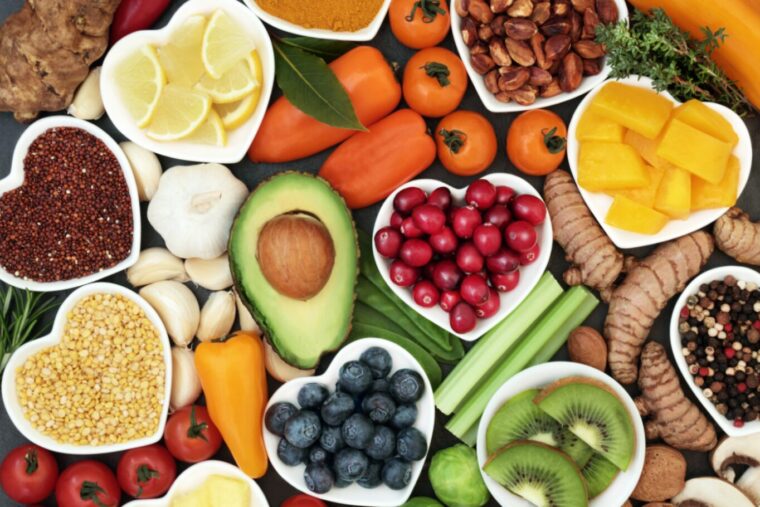Welcome to the evolving landscape of sustainable eating where new trends are not just influencing consumer preferences but reshaping the food industry at its core. In this exploration, we uncover various trends that are carving out a sustainable future for food consumption. Join us as we delve into how these trends cater to the conscientious eater and what businesses can do to stay ahead of the curve.
Plant-based Revolution
The rise of plant-based diets has taken the food industry by storm. With a growing awareness of the environmental impact of meat production, more people are turning to plant-based options. Companies are responding with an array of innovative meat substitutes and plant-based menu items, proving that sustainability can be delicious.
Seasonal Menus
Aligning menus with the seasons is not just a pursuit of peak flavor but also a commitment to sustainable practices. Seasonal menus minimize the need for long-distance food transport and encourage biodiversity, as chefs curate dishes based on what is naturally available throughout the year.
Sustainable Packaging
Efficient food packaging plays an essential role in reducing waste and extending the shelf life of food products. As consumers increasingly demand sustainable options, packaging solutions that are biodegradable or made from recyclable materials are becoming more prevalent, further contributing to a greener food industry.
Organic and Non-GMO Foods

The demand for organic and non-GMO products continues to grow as consumers seek healthier and more eco-friendly options. This trend is pushing the industry to adopt more natural farming methods, reducing reliance on harmful pesticides and promoting a healthier ecosystem.
Upcycling Food
Upcycling food, transforming byproducts or ‘unwanted’ parts of food into valuable ingredients, is a trend that’s gaining popularity. With sustainability as its hallmark, upcycled foods reduce waste and introduce unique flavors and textures into the market, inspiring both chefs and consumers to rethink food.
Zero-waste Kitchens
As the battle against food waste gains momentum, zero-waste kitchens emphasize the complete utilization of food products. Forward-thinking restaurants are showcasing how to creatively repurpose what would typically be discarded, leading to a revolution in kitchen efficiency and sustainability.
Technology-Driven Sustainability
Advancements in technology are paving new ways to approach sustainable eating. From apps that connect consumers to surplus food from restaurants and supermarkets to precision agriculture that optimizes resource use, technology is a powerful tool in the quest for sustainability.
Locally Sourced: Farm to Fork
The farm-to-fork movement supports local economies and reduces carbon footprints through shorter supply chains. Consumers are showing a preference for locally sourced ingredients, and as a result, more businesses are partnering with local farms and gardens to provide fresh, community-centered dining experiences.
Food Policy and Sustainability

As consumers demand more sustainable options, we’re seeing a shift in food policy at both local and international levels. Governments are starting to implement policies that encourage sustainable practices, such as subsidies for organic farming or penalties for food wastage. These policies are critically important as they can drive large-scale changes and facilitate a more sustainable food industry that’s accountable not just to profits, but to people and the planet.
Educating Consumers
Education is key to advancing sustainable eating habits. By increasing awareness about the environmental and health benefits of sustainable food choices, consumers can make more informed decisions. Schools, non-profit organizations, and food businesses play a vital role in spreading knowledge about sustainable practices. Workshops, campaigns, and informational resources can empower individuals to change their consumption patterns and advocate for a more sustainable food system.
Regenerative Agriculture
Regenerative agriculture is emerging as a transformative approach to farming, focusing on improving soil health and increasing biodiversity. This method goes beyond sustainable practices by actively enhancing the ecosystem. It includes techniques like crop rotation, conservation tillage, and organic farming – all of which can restore degraded land and mitigate climate change. The adoption of regenerative agriculture promises not only to sustain but also to revive the natural resources that our food systems rely on.
Food Waste Reduction Strategies
Efforts to reduce food waste are critical in sustainable eating trends. Businesses and individuals alike are adopting innovative strategies to minimize wastage. Initiatives include donating surplus food to food banks, repurposing kitchen scraps, and supporting composting programs. By curbing food waste, we not only reduce environmental impact but also address the issue of hunger in communities.
Measuring Environmental Impact
Measuring the environmental impact of food production and consumption is essential for informed choices. Metrics such as carbon emissions, water usage, and land degradation provide insights into sustainability. Consumers are increasingly seeking products with lower carbon footprints and sustainable certifications, prompting businesses to disclose their environmental data transparently.
Ethical and Social Responsibility
Sustainable eating encompasses ethical and social dimensions. Fair trade practices, ethical sourcing, and supporting local communities are integral. Ensuring workers’ rights and equitable treatment in the food supply chain is crucial. By embracing ethical and socially responsible practices, the food industry can foster positive change on a global scale.
Influencing Consumer Behavior

Consumer behavior plays a pivotal role in sustainable eating. Conscious consumerism is shaping choices, with individuals seeking products that align with their values. Social media and online platforms are influential in promoting sustainable food trends. Education campaigns and transparent labeling further empower consumers to make eco-conscious choices.
Global Perspectives on Sustainable Eating
Sustainable eating trends vary globally, influenced by cultural, economic, and environmental factors. While some regions prioritize plant-based diets, others focus on preserving traditional food practices. Examining global perspectives allows us to appreciate the diversity of sustainable eating and encourages cross-cultural exchange of ideas and practices.
Final Thoughts
Each of these sustainable eating trends presents its own set of challenges and opportunities for the food industry. Businesses that adapt to these trends not only contribute to a healthier planet but also connect with consumers who are increasingly making choices based on environmental and health impacts. As the food industry continues to evolve, one thing remains clear: sustainability is no longer a niche market; it’s a necessary consideration for any business looking to succeed in the ever-changing food landscape.
